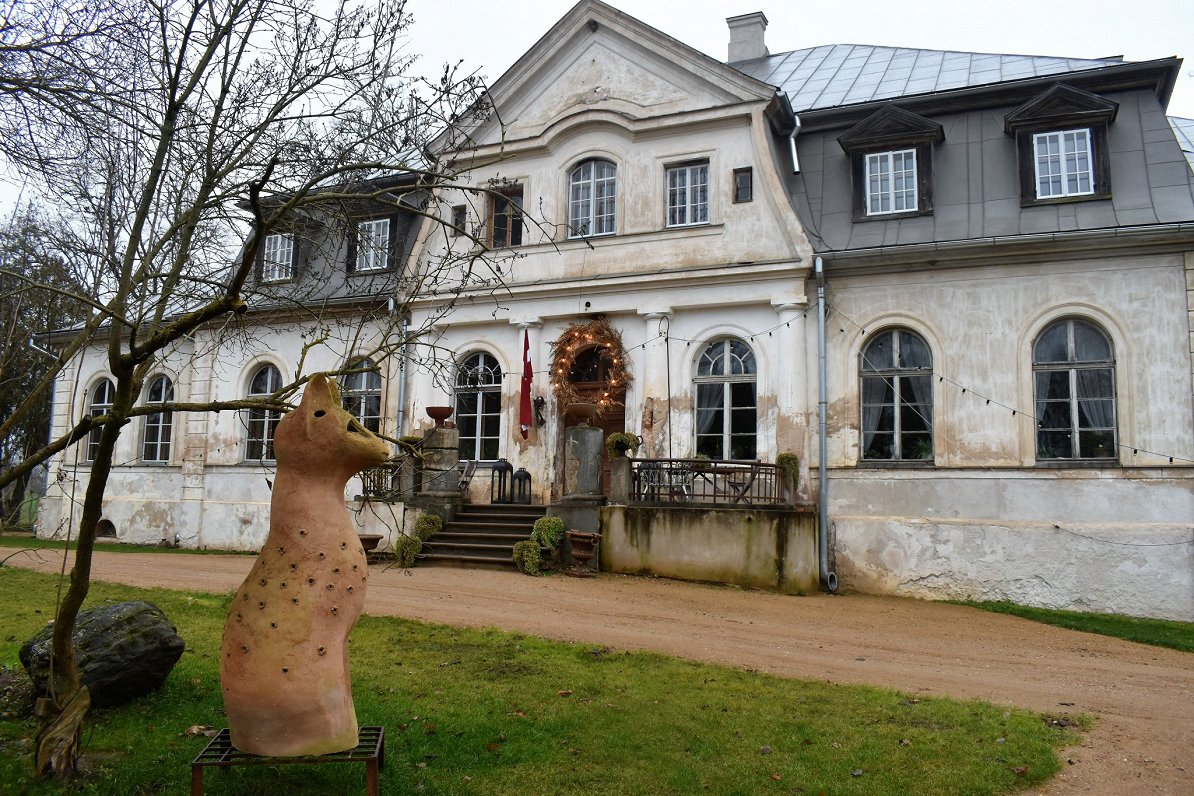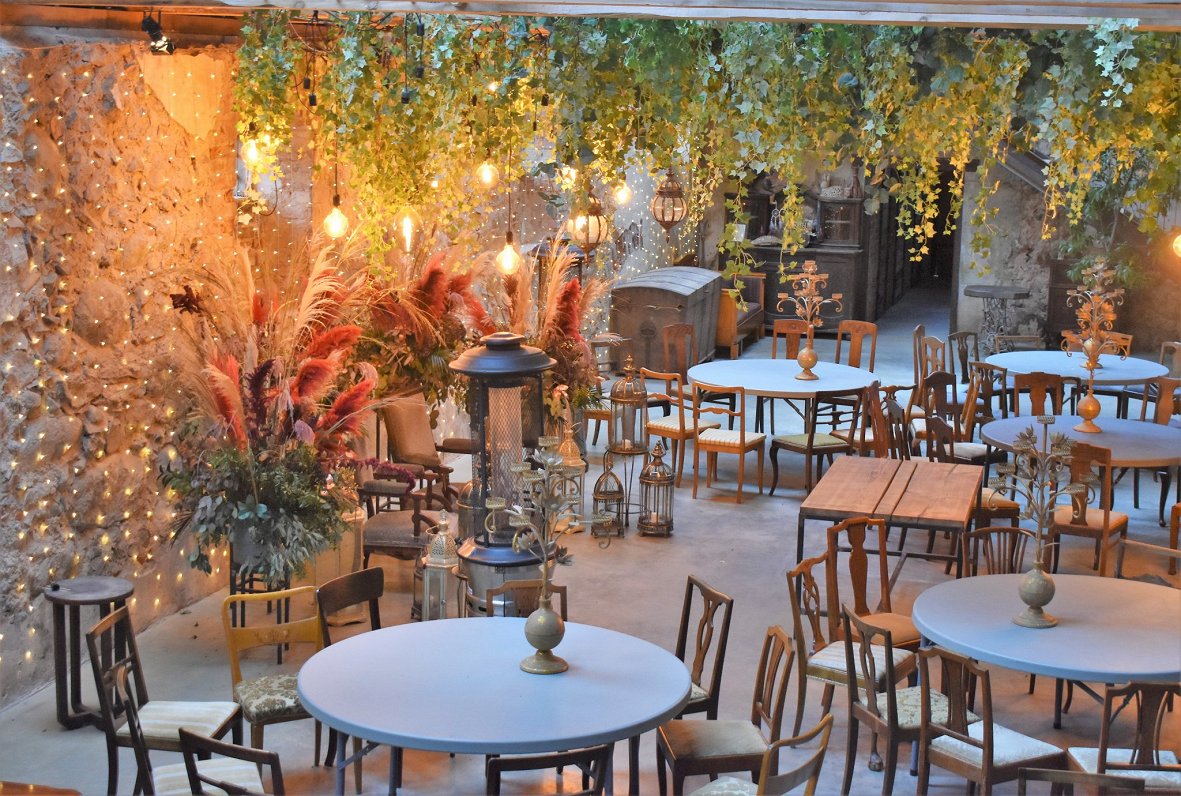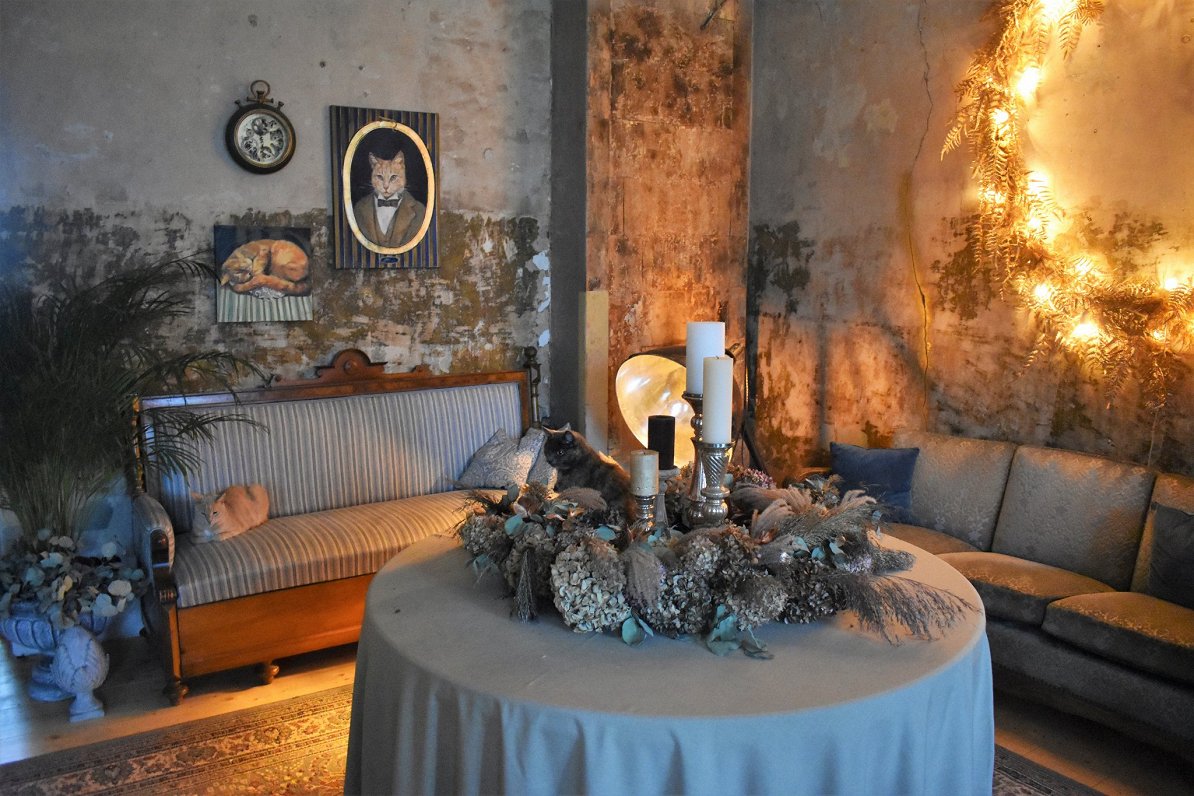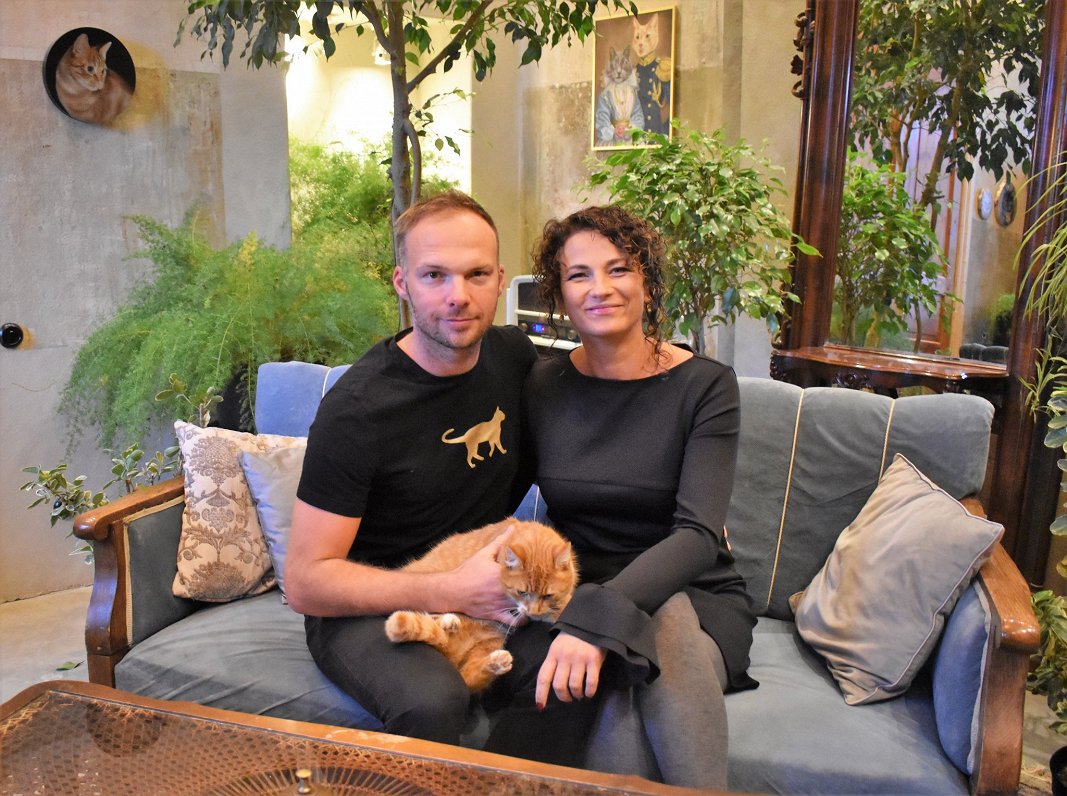Back in 2016, Jānis and Asnāte Avotnieks decided to quit the rat race. So when they saw an old baronial estate in Zemgale up for auction, for a price they could afford, they plunged in. This was despite the fact that before the bidding started, they could only look inside the house through the windows. And with a classic sales pitch, the auctioneer boasted there was enough power to run the TV and a kettle at the same time. And the water supply in the well never failed.

“We’d been happily married for ten years, with three kids, and we wanted to get away from the noise of Rīga and explore new horizons,” says Jānis. “And taking on a manor with a few issues seemed like a great challenge.”
Asnāte agrees it was love at first sight.
“Despite the Soviet bits of the interior, there was a great atmosphere here,” she says. “This place chose us, not the other way around.”
Constructed before the First World War to replace a wooden manor burned down in the 1905 Revolution, the main house had been uninhabited since 2003. So Jānis and Asnāte rolled up their sleeves, knocking down dividing walls, scraping away old paint and fixing the leaking roof. Thanks to funding from the EU LEADER rural development programme and Latvia’s State Culture Capital Foundation, they installed indoor plumbing and central heating.

Friends donated an antique wardrobe here, a chandelier there, and the place took on a “shabby chic” elegance. Individual tourists and wedding parties started crashing in the sleeping spaces dotted around the three stories and grabbing photo opportunities in the building’s elegant nooks and crannies.
“We don’t have diplomas as chefs, decorators, restorers, electricians, carpenters and so on, but we’ve learned a thing or two in the 'school of Abgunste',” says Asnāte.
As well as discovering their own hidden talents, the couple host residencies where artists create works to further enhance the manor. Last year, with such gatherings off limits due to pandemic restrictions, people were invited to send in portraits of the manor’s ten cats. Some 130 watercolours, oil paintings and sketches were submitted by everyone from talented 10-year-olds to accomplished artists, and these pussies now purr from the walls.
The family have also built a large pottery kiln, and ceramic artists have also left works behind. Thus terracotta felines roam around the grounds, too.
“We think we have the biggest collection of cat art in Latvia,” beams Jānis. “It’s a great honour for the cats, and for us as well.”
Abgunste has become such a magnet for creative spirits that international movie makers are using it as a location. This summer, an upcoming film called The Piper starring Elizabeth Hurley was filmed there.
During the lockdowns of recent years, the couple have seen an upsurge in local visitors looking for experiences close to home. Abgunste has not been eligible for any government support, so Jānis and Asnāte have adapted to the times, whipping up gourmet meals in the manor kitchen (personally renovated by Jānis), which their daughters bring to the guests in their rooms.

“We were looking forward to a quiet winter last year, but it didn’t turn out like that,” says Jānis. “Regional guesthouses have done much better than hotels in Riga, and we’ve also benefitted from restaurant closures.”
This summer, as rules were eased, dozens of weddings were celebrated at Abgunste (for bigger events, guests are asked to arrange their own catering). An enticing orangerie recently installed in the old barn supports this side of the business. And open days held twice a month are great for marketing, and bring in donations for specific renovation projects, like refurbishing the historic park.
Other green plans are also afoot. A rose garden filled with bushes gifted by friends is set to bloom next spring, and paths created by Jānis over the last year wind between new flower beds and hedges formed by apple and pear trees.































